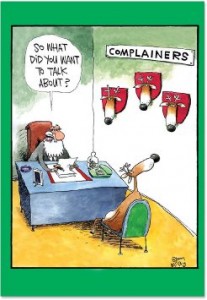Some great data coming out this morning from Glassdoor on what your employees are expecting in 2015. It’s always nice to know what someone is expecting beforehand, otherwise things tend get awkward. It’s like that time you showed up at your girlfriends house in college right before the holidays and she bought you a $50 Tommy Hilfiger rugby shirt and you got her a $4 box of chocolates shaped like Santa. That level of awkward.
In 2015 your employees are expecting a raise. According to Glassdoor’s Employee Confidence Survey they are expecting:
– Between 3-5%.
Not bad. Most companies probably expected this. 2015 will be a good year for many companies, so the 3-5% annual increase is something that will be doable.
Here’s what you might not expect:
– 35% of your employees will look for a new job, if they don’t get the pay raise their expecting.
This can be a major issue, individually. This is why you need to manage expectations early. If your top performer is expecting 10%, and you have 5% in your back pocket, this will be a negative increase. I hate giving negative increases. I feel bad. The employee feels bad. I would rather almost not give the increase at all.
Another expectation that came out of the survey is that both men and women believe women get paid less. Not a huge surprise, but why let that belief live in your environment if it is not true? I’m a big proponent of sharing pay equality by department or division within an organization, if the data is favorable to you. I don’t want employees believing we have equity issues, when we don’t. Make it a celebration that you’re not like all the rest. If you are like all the rest, fix it!
Lastly, all these surveys come with a bit of scare tactic. This one is around turnover! Glassdoor’s employee confidence survey found:
– 48% of your employees are confident they can find another job if they need to. (highest in 6 years)
– 13% fear they will be laid off. (lowest in 6 years)
What does this mean to you? Nothing, if you’re a good employer! It could mean a big headache if you’re a bad company to work for. People have options. Our reality is most employees still won’t leave, if you’re a decent company. That’s just life. People hate change.
It does mean that you probably have to wrangle in some of your leaders who have been getting a little to command and control over the past 5-8 years. People don’t leave companies, people leave horrible bosses that are assholes. You know which ones you need to fix. Fix them, or fire them, you can’t afford to have bad leadership in an employee driven marketplace.





